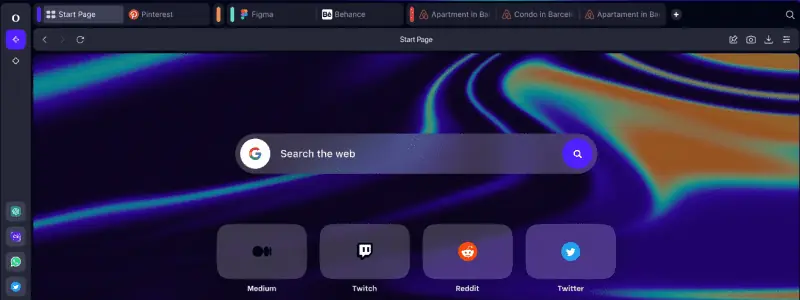Opera, the esteemed web browser company based in Norway, has recently unveiled its latest innovation, a cutting-edge browser called Opera One. Designed to be the successor of its highly acclaimed flagship browser, Opera One is poised to take the center stage shortly. The creators of this revolutionary browser have infused it with powerful features, which they believe will make it well-equipped for the rapidly evolving landscape of a “generative AI-based future.” Although the specifics of these innovative elements have yet to be divulged, the anticipation surrounding Opera One’s release has been palpable, setting the stage for a new chapter in internet browsing.
Opera One, currently debuting as an exclusive developer preview, boasts a groundbreaking core feature known as “Tab Islands.” This ingenious tab management system seamlessly and automatically organizes tabs based on contextual relevance. For example, if you find yourself browsing various travel sites, tabs containing different travel locations or booking sites will be conveniently grouped. Similarly, these tabs will be intelligently clustered as a single unit if you’re working on multiple Google documents. Introducing “Tab Islands” in Opera One is a testament to the browser’s commitment to enhancing user experience and promoting efficient navigation through the ever-growing sea of online content.
In Opera One’s innovative “Tab Islands” system, every island (or group) is visually represented by a vertically oriented, color-coded pill, making it easy for users to distinguish between different clusters of tabs. Users can effortlessly expand or collapse these islands with a single click, streamlining the browsing experience. Moreover, Opera One incorporates a practical tooltip feature for collapsed islands, further assisting users in quickly identifying and locating the desired tab group.
Although Opera has remained relatively tight-lipped about their new browser’s specific AI-centric features, they shed some light on a couple of key integrations. Opera has confirmed that the ChatGPT and ChatSonic functionalities, initially introduced to the flagship browser in March, will now be enabled by default in Opera One.
It will be interesting to see how will Google will shape Chrome to this new AI era, as well as Microsoft with Edge, which, as we know, has a tight relationship with Open AI and ChatGPT. Of course, since we also have a soft spot for Brave Browser, we’re curious to see how this browser war will shape up and how it will all develop in the coming months and years.














